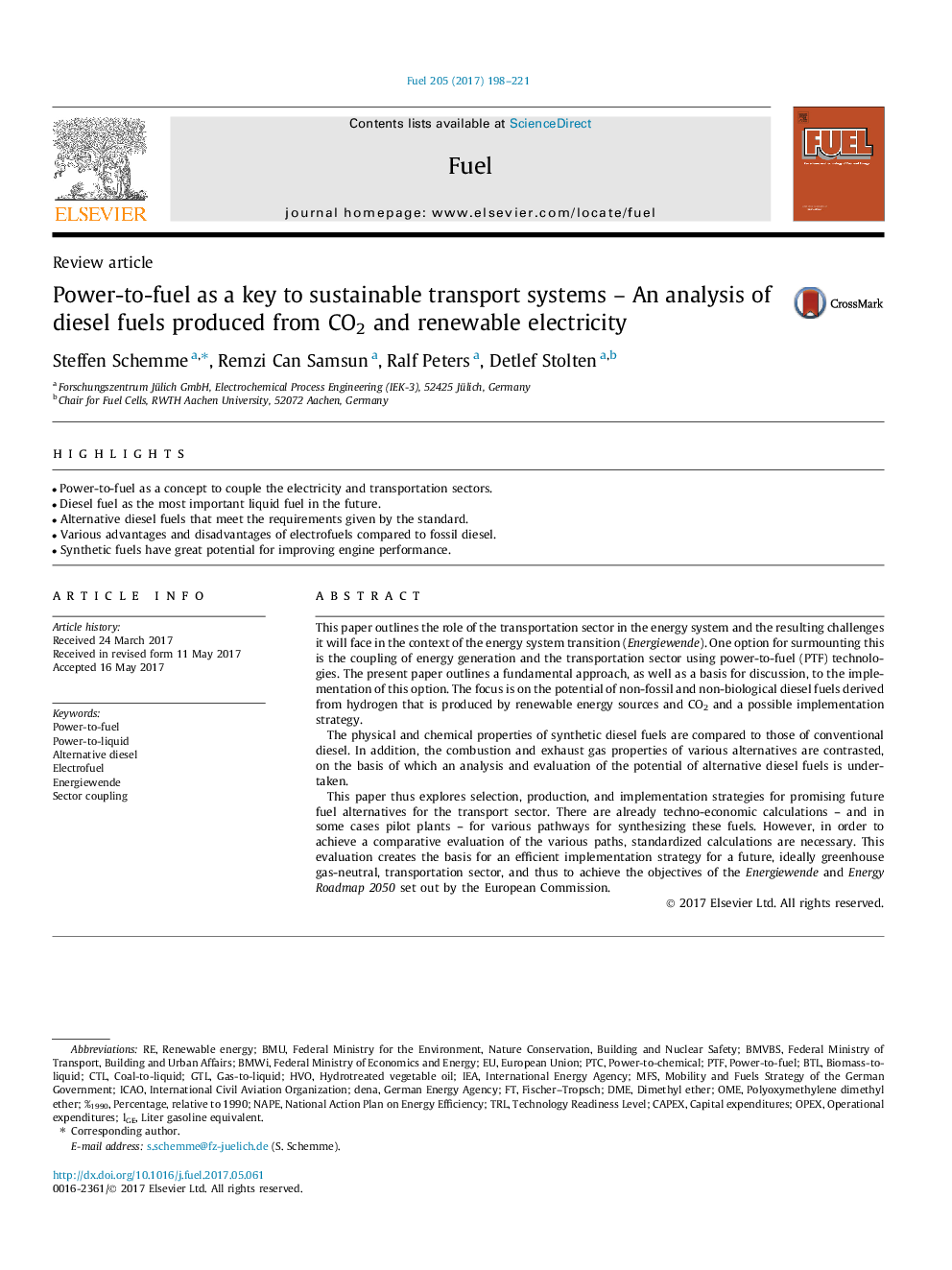| Article ID | Journal | Published Year | Pages | File Type |
|---|---|---|---|---|
| 4768619 | Fuel | 2017 | 24 Pages |
Abstract
This paper thus explores selection, production, and implementation strategies for promising future fuel alternatives for the transport sector. There are already techno-economic calculations - and in some cases pilot plants - for various pathways for synthesizing these fuels. However, in order to achieve a comparative evaluation of the various paths, standardized calculations are necessary. This evaluation creates the basis for an efficient implementation strategy for a future, ideally greenhouse gas-neutral, transportation sector, and thus to achieve the objectives of the Energiewende and Energy Roadmap 2050 set out by the European Commission.
Keywords
LGESector couplingOPEXBMUDENATRLMFSPTCGTLIEACAPEXPTFOMEHVODMECTLBtLInternational energy agencyEuropean UnionElectrofuelRenewable energyEnergiewendeICAODimethyl etherHydrotreated vegetable oilCoal-to-liquidBiomass-to-LiquidInternational Civil Aviation OrganizationTechnology Readiness LevelFischer–TropschPower-to-LiquidNAPEcapital expendituresOperational expendituresGas-to-liquid
Related Topics
Physical Sciences and Engineering
Chemical Engineering
Chemical Engineering (General)
Authors
Steffen Schemme, Remzi Can Samsun, Ralf Peters, Detlef Stolten,
